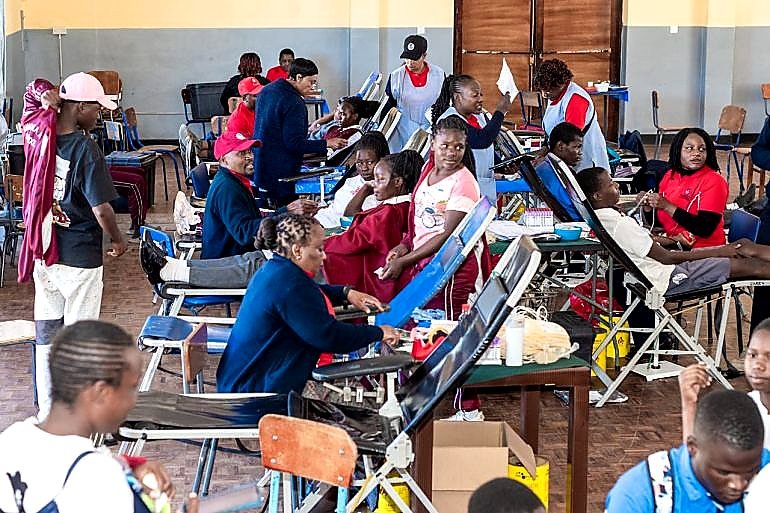Bulawayo, Zimbabwe –When Lloyd Muzamba was critically injured in a car accident on the Harare–Bulawayo highway in 2023, he needed an urgent blood transfusion to save his life. Despite being admitted at Mpilo Central Hospital, the biggest public health facility in Zimbabwe’s Matabeleland region, a shortage of supplies meant the doctors didn’t have enough for him.In desperation, Muzamba’s family turned to their only other option – a nearby private hospital that sold them the three pints of blood. But at a cost of $250 per pint, Muzamba – who earned a $270 monthly salary and had no savings – could not afford it.Recommended Storieslist of 3 itemslist 1 of 3Desperate Zimbabweans cross Zambia border for cheaper healthcare, medicineslist 2 of 3‘They give me hope’: Beating HIV stigma with community support in Zimbabwelist 3 of 3Africa doesn’t need aid. It needs control over its critical mineralsend of listWith time running out, the family had to make a plan. Eventually, Muzamba’s uncle sold a cow for $300 and asked other relatives to contribute the balance.Two years on, the now recovered Muzamba says the incident has left him psychologically wounded, as he worries about other emergencies when people may need lifesaving blood.“Three pints can be a small number; others might need more than that. But due to the costs involved, it becomes life-threatening,” said the 35-year-old, who works in a hardware store in Bulawayo.“I could not get the blood without paying or making a payment plan. It was a painful experience for an ordinary Zimbabwean like me.”Muzamba’s is not an isolated case.With ongoing currency woes, rising costs of living and high levels of poverty, desperate Zimbabweans in need of care face life-threatening delays due to financial barriers. This includes blood shortages – despite supplies being free in public health facilities.AdvertisementTanaka Moyo, a mother of two in the capital Harare, also experienced the stress of needing to pay for emergency blood supplies d
Source: Al Jazeera
